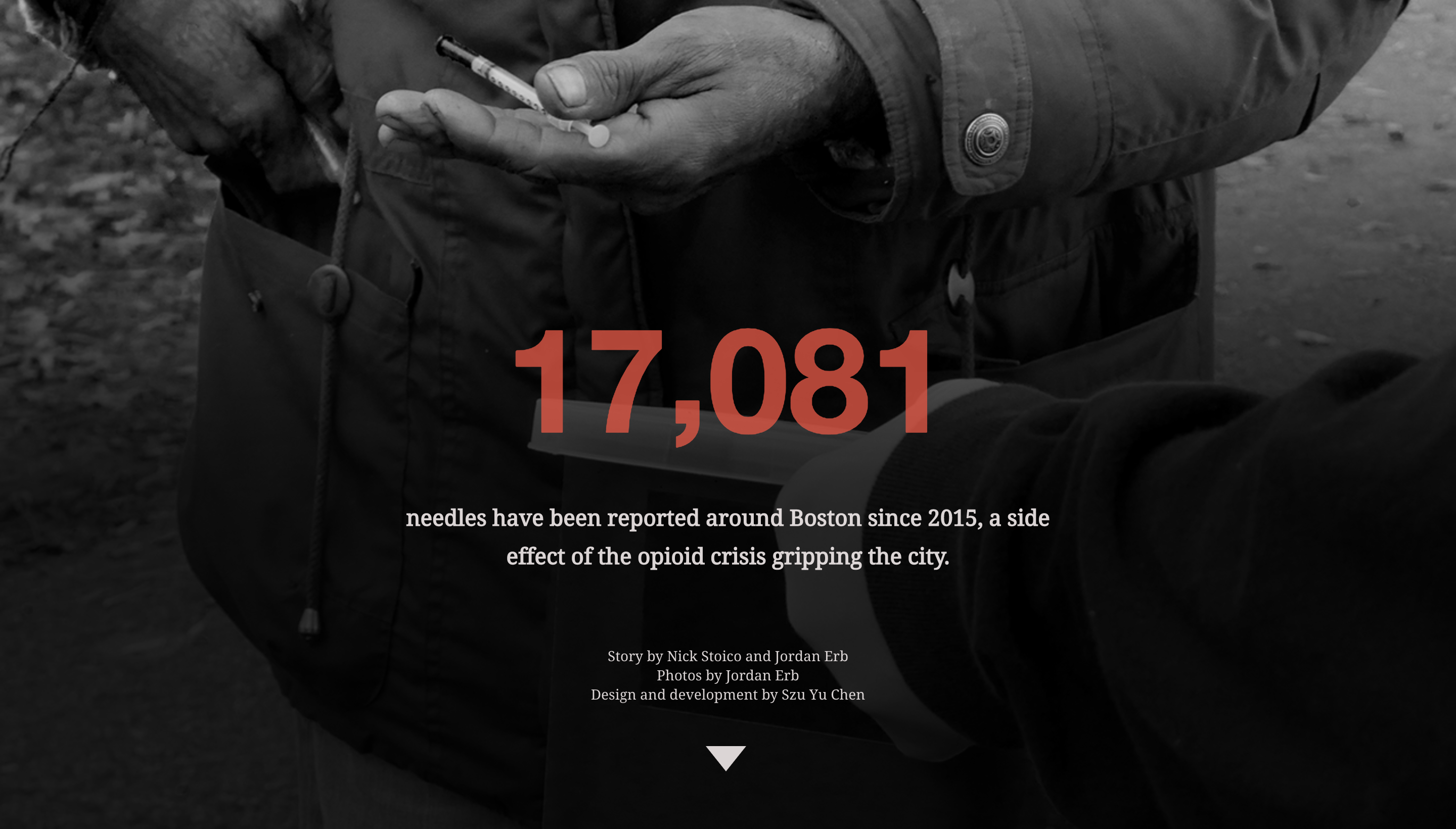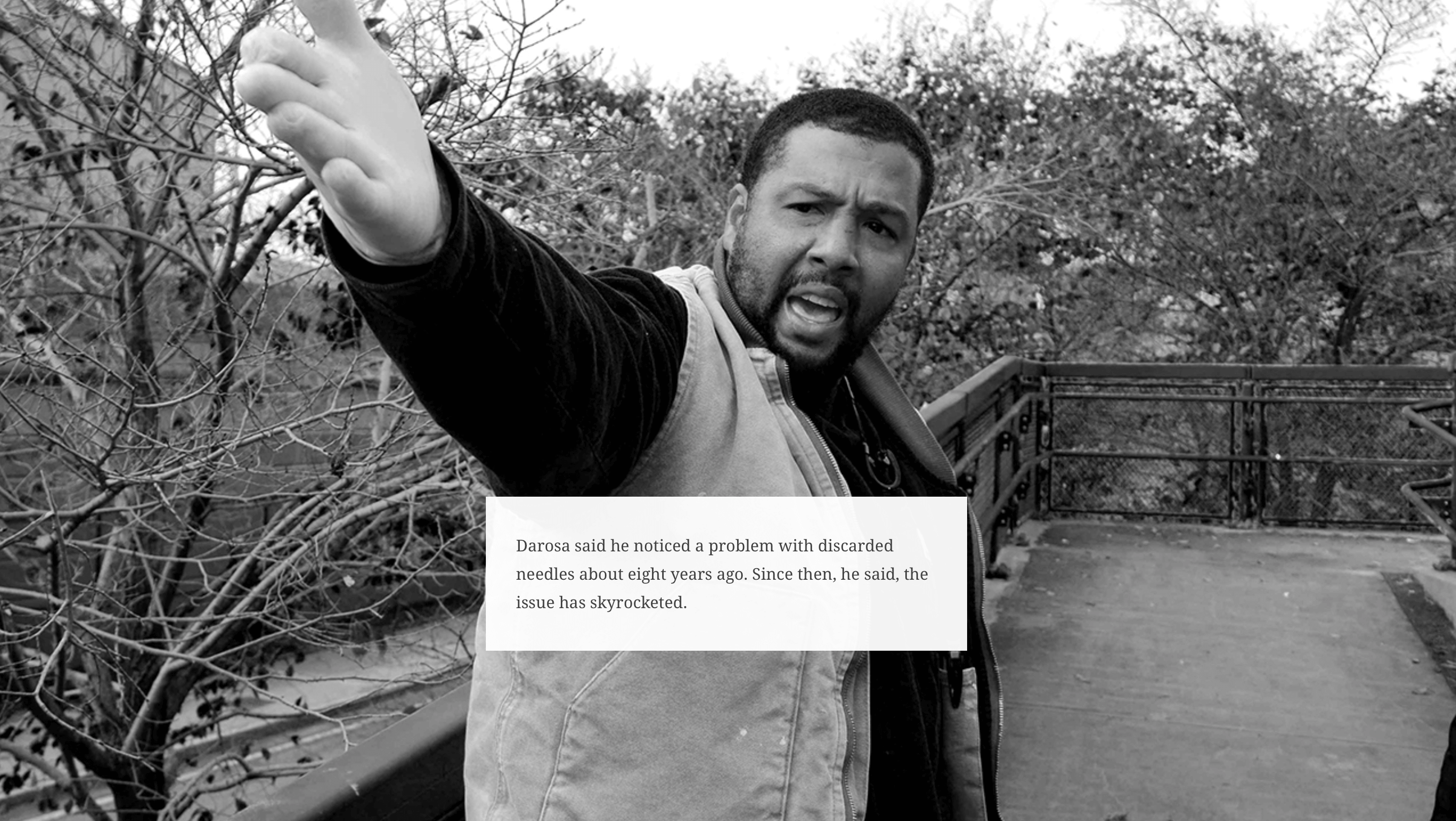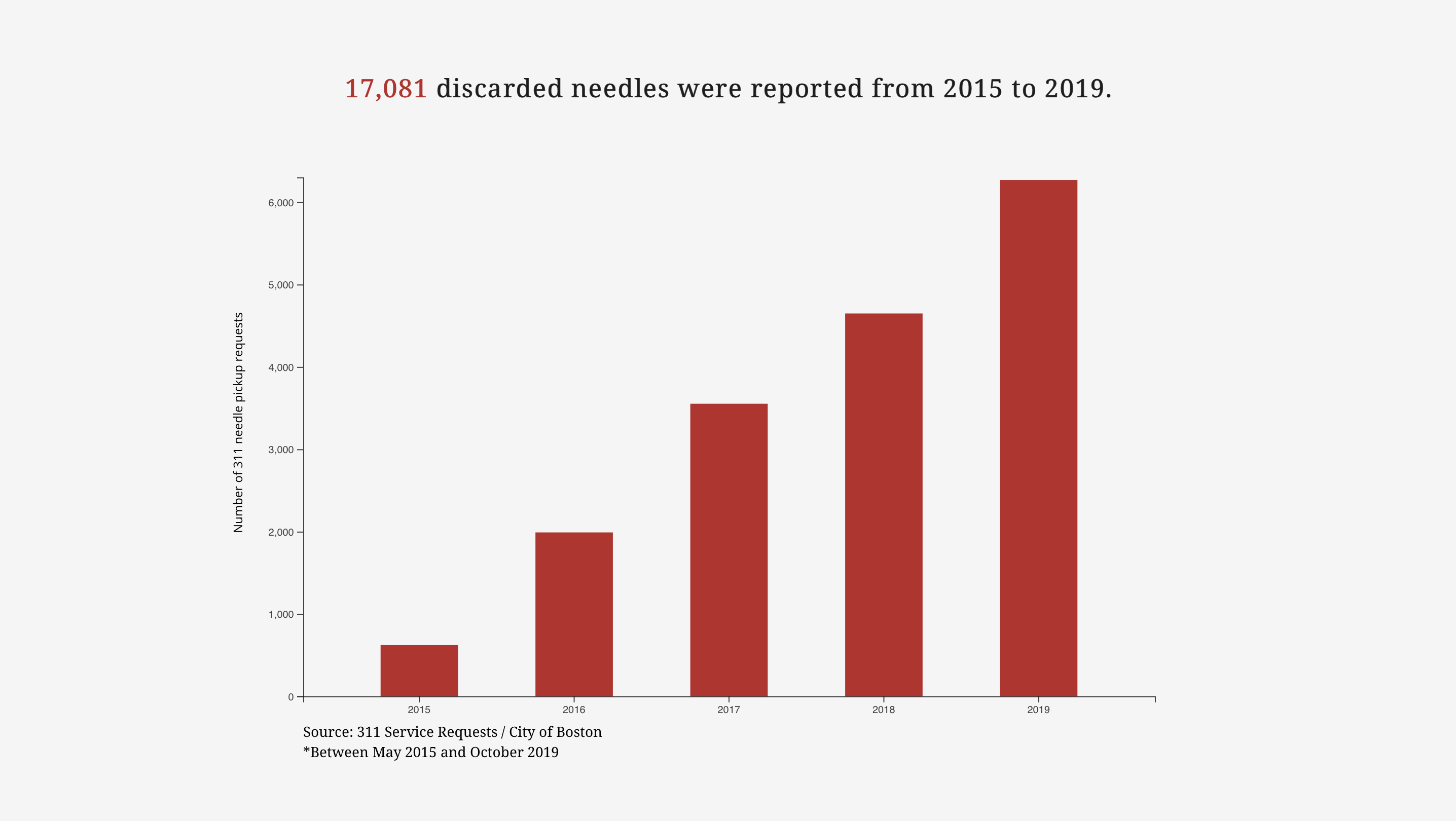Data Storytelling Class @NEU
Design and Development
Oct 2019 - Nov 2019
According to 311 dataset from the city of Boston, needle pickup requests cluster around Mass Ave/Cass, also known as the Methadone Mile. Since there are lots of treatment centers, methadone clinics and hospitals, it attracts people seeking for help, those struggling with drug addiction and drug dealers.
The data also shows that the number of requests for needle pick-ups has steadily increased over the past five years –– now totalling over 17,000. The needles are but a quantifier of a bigger problem, a numerable proxy for the larger topic at hand: the nation’s opioid crisis.
Residents in this area are deeply affected. Kids need to clean up the needles before they play on the field. Some complained about the needle disposal kiosks being set up in front of the school. Some argued that Boston Public Health Commission should have kept track of the free needles being given away.
But service providers, those who stand on the frontline of this issue as they try to help people suffering from addiction every day, say this epidemic isn’t anything new.



